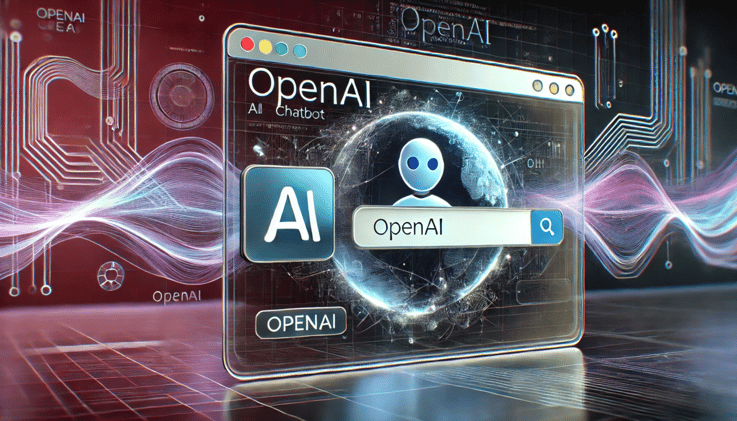A Potential Game-Changer in the Tech Industry
OpenAI, the company behind the popular chatbot ChatGPT, is reportedly exploring the development of a web browser that integrates its cutting-edge chatbot technology. According to a recent report by The Information, OpenAI is also in discussions or forming agreements with major brands like Conde Nast, Redfin, Eventbrite, and Priceline to enhance search capabilities for their platforms.
This move marks a significant step forward for OpenAI, potentially positioning it as a direct competitor to Google, which dominates the browser and search markets. OpenAI has already introduced a search product called SearchGPT, but the creation of a browser would signify a major leap forward in its ambitions.
The Competition Heats Up
Google’s stronghold in the browser and search markets faces increasing scrutiny from regulators. The U.S. Department of Justice has argued that Google should sell its Chrome browser to address antitrust concerns and reduce its monopoly in online search.
At the same time, OpenAI’s advancements signal increasing competition in AI tools. Since the launch of ChatGPT in late 2022, Google has bolstered its AI initiatives, releasing its own generative AI chatbot, Gemini, last year. However, competition may already be affecting Google’s bottom line. Alphabet, Google’s parent company, saw its shares drop approximately 1% in extended trading, following a 5% decline earlier that day.
OpenAI’s Strategic Moves
In addition to its rumored browser, OpenAI is reportedly collaborating with major brands to enhance AI-powered search functionalities. For example, it has initiated discussions to incorporate its technology into Samsung devices, a key business partner of Google. OpenAI also powers the ‘Apple Intelligence’ features in newer Apple devices, further embedding itself in consumer tech ecosystems.
Despite these advancements, reports indicate that OpenAI is still far from launching its browser, which remains in the conceptual stages for now. Neither OpenAI nor its key collaborators, including Google and Samsung, have commented on these developments.
What This Means
OpenAI’s potential entry into the browser market underscores its intent to challenge established tech giants like Google. If successful, an AI-powered browser could redefine how users engage with the internet, blending advanced chatbot capabilities with personalized, dynamic search features.
However, building and scaling such a tool to rival Chrome would require not only innovation but also strategic partnerships and compliance with regulatory standards. This move, if realized, could lead to a more diversified internet landscape, offering users fresh options that prioritize AI-driven interactivity and convenience.
The Potential Impact of OpenAI’s Browser
An AI-powered browser could revolutionize the way we interact with the web, making it more intuitive and user-friendly. With advanced chatbot capabilities integrated into the browser, users could enjoy a more personalized experience, with relevant information and suggestions offered in real-time.
Moreover, an AI-driven search feature would enable users to find what they’re looking for more efficiently, reducing the time spent searching for information online. This could have significant implications for various industries, including e-commerce, where consumers rely heavily on online search engines to discover products and services.
The Regulatory Landscape
Regulatory bodies are keeping a close eye on OpenAI’s developments, particularly in light of Google’s dominance in the browser and search markets. The U.S. Department of Justice has argued that Google should sell its Chrome browser to address antitrust concerns and reduce its monopoly in online search.
OpenAI will need to navigate these regulatory challenges carefully if it wants to succeed in the browser market. Building a compliant AI-powered browser will require OpenAI to demonstrate a commitment to transparency, data protection, and user choice.
The Future of Browsers
OpenAI’s potential entry into the browser market could lead to a more competitive landscape, driving innovation and improvement across the industry. As users increasingly rely on their browsers for daily tasks, including online shopping, communication, and entertainment, companies will need to adapt quickly to changing user needs.
In this new era of AI-driven browsers, OpenAI’s success would depend on its ability to balance innovation with regulatory compliance and user demand. The outcome will be a fascinating spectacle to watch, as the tech industry continues to evolve at an unprecedented pace.
Conclusion
OpenAI’s exploration of an AI browser marks a significant step forward in its ambitions to challenge established tech giants like Google. While the road ahead is fraught with challenges, including regulatory hurdles and intense competition, OpenAI’s potential entry into the browser market could redefine how we interact with the web.
As users increasingly demand more intuitive and user-friendly online experiences, companies will need to adapt quickly to changing user needs. OpenAI’s success in this space would depend on its ability to balance innovation with regulatory compliance and user choice, setting a new standard for AI-driven browsers that prioritize interactivity and convenience.
Sources
- The Information: "OpenAI Exploring Web Browser with Integrated Chatbot Technology"
- Alphabet Inc. (GOOGL): Q4 2022 Earnings Release
- Google’s Gemini: "A New Era in Generative AI"
Note: This article was created by Alicia Shapiro, CMO of AiNews.com, with writing, image, and idea-generation support from ChatGPT, an AI assistant. However, the final perspective and editorial choices are solely Alicia Shapiro’s. Special thanks to ChatGPT for assistance with research and editorial support in crafting this article.


